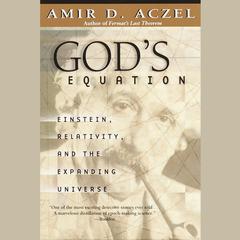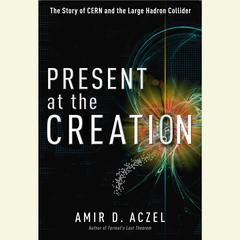 Play Audiobook Sample
Play Audiobook Sample
Riddle of the Compass (Abridged) Audiobook
 Play Audiobook Sample
Play Audiobook Sample
Quick Stats About this Audiobook
Total Audiobook Chapters:
Longest Chapter Length:
Shortest Chapter Length:
Average Chapter Length:
Audiobooks by this Author:
Publisher Description
The story of the compass is shrouded in mystery and myth, yet most will agree it begins around the time of the birth of Christ in ancient China. A mysterious lodestone whose powers affected metal was known to the Chinese emperor. When this piece of metal was suspended in water, it always pointed north. This unexplainable occurrence led to the stone's use in feng shui, the Chinese art of finding the right location. However, it was the Italians, more than a thousand years later, who discovered the ultimate destiny of the lodestone and unleashed its formidable powers. In Amalfi sometime in the twelfth century, the compass was born, crowning the Italians as the new rulers of the seas and heralding the onset of the modern world. Retracing the roots of the compass and sharing the fascinating story of navigation through the ages, The Riddle of the Compass is Aczel at his most entertaining and insightful.
Download and start listening now!
"The book was mostly about the application of the compass and how it changed trading routes. I was hoping for a little more about why it works. It was a quick read, good overview of historical voyages."
— Wa2nyc (5 out of 5 stars)
Quotes
-
“Aczel examines the myths, legends, and facts behind the dispute and provides a logical, although not indisputable, conclusion on which nation can claim the compass as its own. He also provides a layman’s overview of the development of navigation from the earliest days to the fifteenth century. Although the author is primarily known for his scientific books, Riddle of the Compass contains little or no jargon and a minimum of scientific terminology. A worthwhile and interesting addition.”
— School Library Journal
Riddle of the Compass Listener Reviews
-
" Another excellent history of science/math and the world that brought it about and was changed by it. As is often the case, some of his diversions, while perhaps an attempt to paint a fuller historical picture, often end up contributing little more than making the book longer than it needs to be. Still, Aczel's research and presentation are a genuinely rewarding and should not be missed. "
— AC, 2/7/2014 -
" quick read - more like a thesis than anything else - but contained some interesting tidbits... "
— Katie, 12/29/2013 -
" A brief history of the unknown origins of one the most important tools in human history. "
— Rab9975, 12/26/2013 -
" Who knew that the story of a tool could be so compelling? "
— John, 12/13/2013 -
" Fascinating topic but redundant and by pg 130, it didn't seem there was any further new information about the compass itself but, rather, about general navigation improvements. Easy reading. "
— Debra, 12/2/2013 -
" Some fairly interesting information about the origin of the magnetic compass and its importance to navigation. Unfortunately, there's not actually a whole book of material here, so the author s-t-r-e-t-c-h-e-d his narrative almost to the breaking point. "
— Stan, 11/13/2013 -
" This was a great read, describing how the compass was invented and how it changed the world. "
— Elizabeth, 9/21/2013 -
" so far, this is excellent! "
— Anne, 8/9/2013 -
" some interesting things to pick up in the book - new views and info for me of sea-faring nations and their history. nothing earth-shattering in this but the history is engaging. "
— Pat, 12/14/2012 -
" The history of the compass and its use across the world. The nautical wind rose compass began with the eight winds of the Mediterranean. Then the twelve winds of classical antiquity were added and ultimately the modern compass wind rose evolved. "
— Rae, 12/10/2012 -
" A book about the invention of the compass. I only skimmed it lightly. "
— Frederick, 11/30/2012 -
" Somewhat dissapointing narrative of the history of the compass. Not terribly detailed or interesting. "
— Avmacdoug, 8/10/2012 -
" A very short book. I think it could have been expanded into a much more interesting work with the addition of more details and insight into the research, but I expect a lot from my non-fiction. (And I like longer books). This just wasn't fleshed out enough to be a satisfying read. "
— Patricia, 6/30/2012 -
" not so much impressed with the depth of the material presented "
— Mohammed, 6/27/2012 -
" Very good, full of lots of interesting historic facts. The compass is from China! I took some notes. Venice has a lot of interesting history, too. Napoleon took Venice without ever setting foot in it - because they let their Navy die. "
— Caroline, 6/24/2012 -
" I wavered between 2 and 3 stars for this book. Although the author did a decent job of covering the topic I thought the prose was very dry. I also thought the book had a lot of filler in order to make it longer. "
— Abby, 5/1/2012 -
" Not nearly as interesting as I'd hoped. "
— Shannon, 11/15/2011 -
" Very interesting and easy historical read. "
— A, 10/19/2011 -
" A quick and interesting read. "
— Stan, 7/27/2011 -
" Way to much focus on the compass and no story. I learned a few things but the book was a bit of a drag. "
— Dan, 7/7/2011 -
" Way to much focus on the compass and no story. I learned a few things but the book was a bit of a drag. "
— Dan, 6/16/2011 -
" Very interesting and easy historical read. "
— A, 2/13/2011 -
" not so much impressed with the depth of the material presented "
— Mohammed, 1/23/2011 -
" quick read - more like a thesis than anything else - but contained some interesting tidbits... "
— Katie, 6/25/2010 -
" Some fairly interesting information about the origin of the magnetic compass and its importance to navigation. Unfortunately, there's not actually a whole book of material here, so the author s-t-r-e-t-c-h-e-d his narrative almost to the breaking point. "
— Stan, 2/25/2010 -
" Somewhat dissapointing narrative of the history of the compass. Not terribly detailed or interesting. "
— Avmacdoug, 12/29/2009 -
" Very good, full of lots of interesting historic facts. The compass is from China! I took some notes. Venice has a lot of interesting history, too. Napoleon took Venice without ever setting foot in it - because they let their Navy die. "
— Caroline, 11/1/2009 -
" some interesting things to pick up in the book - new views and info for me of sea-faring nations and their history. nothing earth-shattering in this but the history is engaging. "
— Phopping, 6/13/2009 -
" This was a great read, describing how the compass was invented and how it changed the world. "
— Elizabeth, 10/25/2008 -
" Not nearly as interesting as I'd hoped. "
— Shannon, 8/26/2008
About Amir D. Aczel
Amir Aczel (1950–2015) earned his PhD in mathematics from UC Berkeley and is the author of the acclaimed Fermat’s Last Theorum, which was published in twenty-two languages. In 2012 he was awarded a Sloan Foundation grant; in 2004 he was awarded the prestigious John Simon Guggenheim Memorial Foundation Fellowship. From 2005 to 2007, Aczel was a visiting scholar at Harvard. He was also a research fellow in the history of science at Boston University. He wrote for Discover magazine online, regularly published in Scientific American as well as science pieces for the New York Times and Wall Street Journal. He often interviewed about science on radio and television, including recent appearances on NPR’s Talk of the Nation’s Science Friday.
About Henry Leyva
Henry Leyva, an Earphones Award-winning narrator, is a classically trained actor with extensive work in theater, television, film, and radio. He has appeared off Broadway and in regional theaters across the country in many plays, including Romeo and Juliet, Taming of the Shrew, and Street Car Named Desire. He has also performed in audio dramas for the Syfy Channel and National Public Radio






























